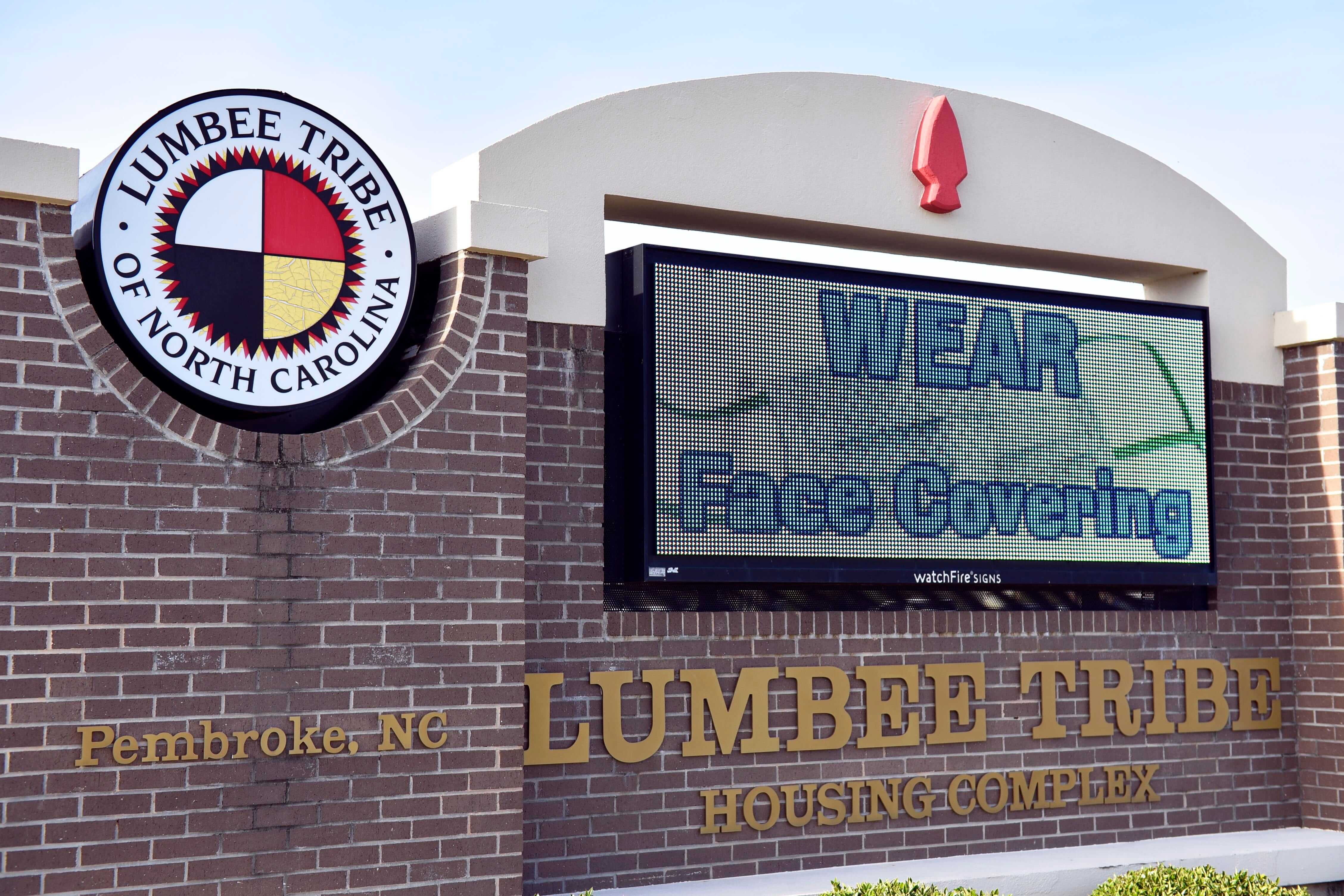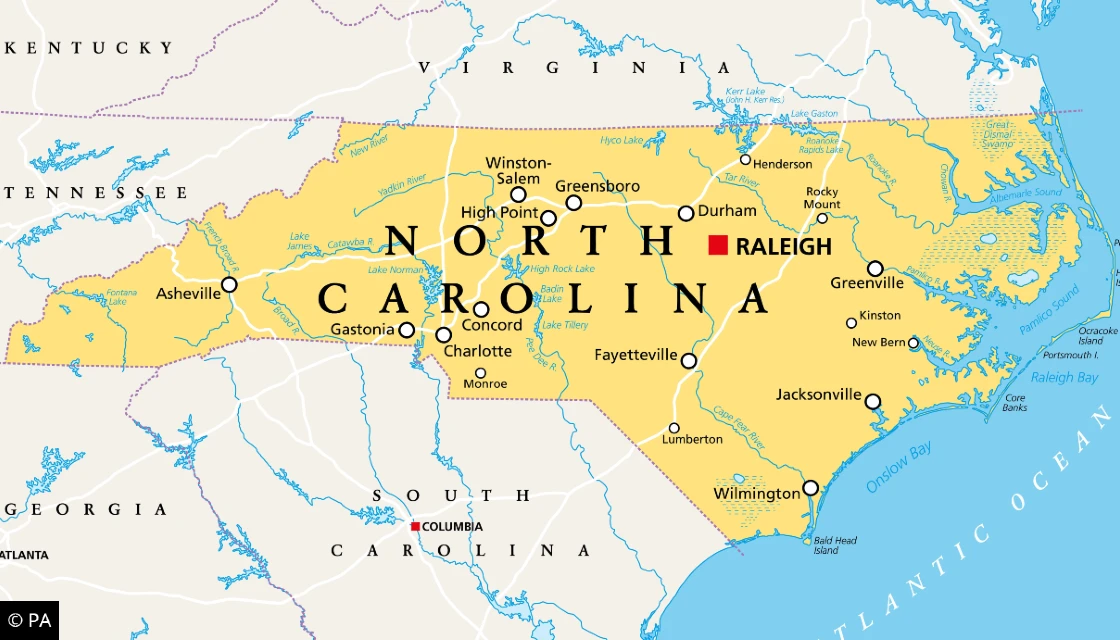A bill to legalize mobile North Carolina sports betting finally moved in the Senate Wednesday, but that vote came with some new amendments.
The North Carolina Senate Committee on Commerce and Insurance voted unanimously to pass an amended version of the mobile and online sports betting bill, House Bill 347. The changes made by the panel include raising the tax rate on operator revenue from 14% to 18%, and prohibiting operators from deducting promotional credits from their revenues. The amended bill also would legalize parimutuel horse racing in the state, which would encompass live racing and wagering, online wagering and historical horse racing.
The latter is a slot-like gaming machine that uses the outcomes of previously run races to determine if the player wins their bet. Sen. Jim Perry offered the amendment to include the horse racing components, which were approved.
The bill would vastly expand the availability of sports betting in the state. Currently, it’s available only at the state’s three tribal casinos, which are located in the south central and western parts of North Carolina.
HB 347, sponsored by state Rep. Jason Saine, allows for the state to license between 10 and 12 online operators and for the state’s professional sports teams to host brick-and-mortar sportsbooks. Tribal gaming operators also can partner with online operators, and those arrangements would not count toward the number approved by the North Carolina State Lottery.
North Carolina betting apps, except for the ones partnering with the Eastern Band of Cherokee Indians and The Catawba Nation, would not be accessible on tribal lands within the state.
North Carolina Lagging Behind Other States
Sports betting is currently legalized in 37 U.S. states, plus the District of Columbia and Puerto Rico. A bill to legalize it in Vermont is sitting on the governor’s desk.
Speaking in support of the legislation, state Sen. Timothy Moffitt told his colleagues that the bill is not as much about legalization as it is recognizing it already takes place.
“One of the things that I have found very interesting as a lawmaker is that we often lag behind what's happening in the real world,” he said. “When I looked at this issue, I found myself asking the same questions that folks probably asked in the early 1930s during the era of Prohibition. What are we going to do with our regulations, when we have essentially banned something, but our folks are participating in that and ignoring the law? That's where we are today.”
The only public comments the committee received came from organizations or churches opposed to the bill on moral grounds.
What’s Next?
The House sent HB 347 to the Senate thanks to a 64-45 vote on March 29. However, it sat in that chamber as the Senate considered what bills its members proposed that it wanted to send to the House.
Wednesday’s vote does not send the bill straight to the Senate floor. Instead, it must pass the Finance Committee and the Rules and Operations Committee before that can happen. It’s uncertain when those steps will occur.
The House also would need to agree with any changes made by the Senate.
Gauging the North Carolina Sports Betting Market
How big could sports betting be in North Carolina? With a population of 10.7 million people, the Tar Heel State would become the fifth largest in the U.S. to offer statewide wagering.
BetCarolina recently conducted a poll that found 15.6% of North Carolina adults already bet on sports, and 30.9% said they are either “very likely” or “likely” to bet if the state legalizes sports betting statewide. A quarter of those surveyed said they would bet at least monthly, and nearly half said they would bet at least once a year.
And roughly 1-in-7 told BetCarolina they have traveled across state lines to place a bet in Tennessee or Virginia, states where online wagering is already allowed.
In addition, GeoComply compiled data for BetCarolina showing more than 1.4 million geolocation transactions originated in the state from roughly 142,000 unique accounts from the beginning of the year to Sunday, May 21. That period covers the NFL playoffs, the NCAA Men’s Basketball Tournament and the current run by the Carolina Hurricanes to the NHL Stanley Cup Playoffs Eastern Conference Final.
Geolocation transactions indicate when a user is accessing a sports betting app. Bettors located in North Carolina were blocked from betting on those apps.
Nearly 70% of those transactions were tied to wagering apps licensed in Virginia.
Since the beginning of the year, GeoComply has tracked nearly 5,300 times when a user in North Carolina first accessed an app in the state and then traveled to Virginia to make their wagers. The Canadian company’s data shows people are traveling from as far as Greensboro, about 40 miles south of the Virginia line.
“We are pleased to see continued progress in the North Carolina legislature," GeoComply Senior VP/Government and Public Affairs John Pappas said in a statement after Wednesday's committee meeting. "It is clear from our data that there is high demand for legal betting within North Carolina. Whether our checks are coming from Tar Heel residents, or vacationers enjoying the beaches, the state is losing out on new revenues every time a person logs into their sports betting app based in another state and isn’t able to wager.”
Keep tabs on BetCarolina on the road to full legislation, and we're also home to North Carolina sports betting promos for new customers.







